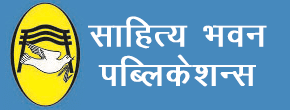प्रस्तुत अर्थशास्त्र Economics पुस्तक छत्तीसगढ़ के विभिन्न विश्वविद्यालयों बी.ए. (अर्थशास्त्र) द्वितीय वर्ष के दोनों प्रश्नपत्रों के नवीनतम पाठ्यक्रम को दृष्टि में रखकर लिखी गयी है।
- समष्टि अर्थशास्त्र (Macro Economics) के अध्ययन विषय का तीव्र गति से विकास हो रहा है और विषय में नवीन प्रवृत्तियाँ प्रवेश कर रही है, जिनका सामान्य परिचय अर्थशास्त्र के विद्यार्थियों को भी प्राप्त होना चाहिए। इस बात को दृष्टि में रखते हुए सभी अध्यायों में नवीन प्रवृत्तियों की यथास्थान स्पष्टता और आवश्यक विस्तार के साथ विवेचना की गयी है। विषय की विवेचना में नवीनतम स्थिति तथा घटना चक्र के उदाहरण देकर विषय को रोचक बनाने का प्रयास किया गया है।
- ‘लोकवित्त’ में 9 नवम्बर, 2020 को राज्यों के बीच केन्द्रीय करों हस्तानांतरण पर 15वे आयोग द्वारा प्रस्तुत रिपोर्ट को सम्मिलित किया गया है।
- विभिन्न अध्यायों में बैंकिंग तथा सार्वजनिक वित्त से सम्बन्धित क्षेत्र में हुए अद्यतन सामग्री का समावेश किया गया है इस प्रकार विषय से सम्बन्धित आंकड़े भी नवीनतम दिए गए हैं।
- अर्थशास्त्र पुस्तक ( Economics Book) में भारत सरकार की नई संशोधित मौद्रिक नीति तथा राजकोषीय नीति की सम्मिलित किया गया है।
अर्थशास्त्र Economics Syllabus For B.A. II Year of Guru Ghasidas Vishwavidyalaya, MATS University, Pandit Ravishankar Shukla University, Bastar University, Bilaspur University, Sarguja University
Paper-I Macro Economics
Unit 1 National Income: Concept and measurement of national income, Economic welfare and national income, Social accounting. Circular flow of income, National income accounting, Green accounting Classical theory of employment, Say’s the law of market Keynesian theory of employment.
Unit 2: Consumption Function—Average and marginal propensity to consume, Keynes’s psychological law of consumption. Determinants of the consumption function. The saving function. The investments multiplier and its effectiveness, the investment Function—marginal efficiency of capital, Autonomous, and induced investment. Saving and investment equality.
Unit 3: Nature and Characteristics of the trade cycle, Theories of trade cycle: Hawtrey’s monetary theory, Hayek’s over-investment theory, Keynes’s view on trade cycles, Schumpeter’s theory of innovation, Samuelson and Hicks multiplier accelerator model, Control of trade cycle.
Unit 4: International Trade—Inter-regional and international trade, Comparative advantage cost theory, Opportunity cost theory, and Heckscher Ohlin theory, International trade and economic development, Tariffs and import quotas, Concept of the optimum tariff. Balance of trade and balance of payment., Concept and components of BOP, Equilibrium, and disequilibrium in BOP, Relative merits and demerits of devaluation, Foreign trade multiplier.
Unit 5: Functions and objectives of international monetary fund, World Bank and World Trade Organization, International monetary reforms and India, Foreign trade in India recent change in the composition and direction of foreign trade, India’s balance of payment, Export promotion and import substitution in India. Multinational Corporation and India.
Paper-II: Money, Banking and Public Finance
Unit 1: Basic concepts: Money—meaning and functions, Gresham’s law; Quantity theory of money-Cash transaction and cash balance approaches; Value of Money, Inflation, deflation and reflation, types, causes and effects on different sectors of the economy; Demand-pull and cost-push inflation; Measures to control inflation. Phillips curve, Concept of demonetization.
Unit 2: Commercial banking-meaning and types; Functions of commercial banks, The process of credit creation, purpose and limitations; Liabilities and assets of banks; Evolution of commercial banking in India after independence; A critical appraisal of the progress of commercial banking after Nationalization, Functions of a central bank; Quantitative and qualitative methods of credit control; Bank rate policy; Open market operations; Variable reserve ratio and selective methods. Role and functions of the Reserve bank of India; Objectives and limitations of monetary policy with special reference to India.
Unit 3: Meaning and scope of public finance; Distinction between private and public finance; public goods v/s private goods; The Principle of maximum social advantage; Role of the government in economic activities; Public expenditure—Meaning, classification, and principles of public expenditure; Trends in public expenditure and causes of the growth of public expenditure in India.
Unit 4: Sources of Public revenue; taxation—Meaning, Canons, and classification of taxes; Division of the tax burden. The benefit and ability to pay approaches; Impact and incidence of taxes; Taxable capacity; Effects of taxation; Characteristics of a good tax system; Equity and Justice in Taxation, Major trends in tax revenue of the Central and State Government in India.
Unit 5: Public debt and financial administration: Sources of public borrowing, Effects of public debt. Methods of debt redemption. The public budget-Kinds of budget, Economic and functional classification of the budget; Preparation and passing of budget in India.






















Sapna shree –
Nice